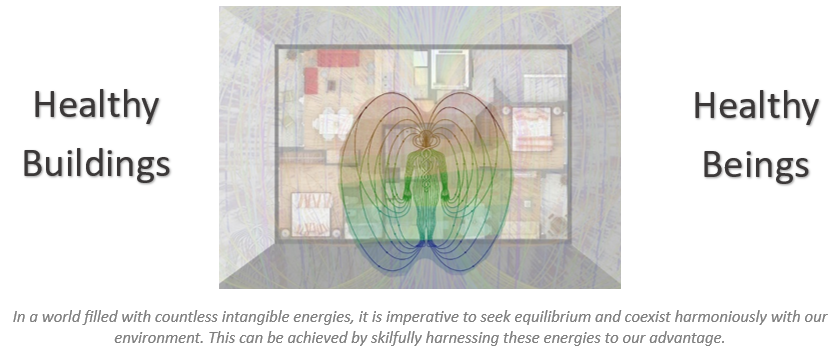
Vaastu Shastra, an ancient Indian system of architecture, is more than just a set of guidelines. It’s a holistic approach to design, incorporating principles of nature, cosmos, and human energy. At its core, Vaastu seeks to harmonize the built environment with its inhabitants, creating spaces that promote well-being, prosperity, and spiritual growth. Adhering to the ten unbreakable rules followed by authentic Vaastu practitioners is paramount to achieving these objectives. And we, at Vardhamaan follow these wholeheartedly.
Rule 1: The Mind-Matter Nexus
The universe is a grand interplay of thought and substance. As reflections of the infinite, we humans are microcosms of this cosmic dance. To grasp the dynamics of human existence, we must first understand the architecture of the human soul. When assessing a space, it’s essential to perceive not just the physical environment but also the energetic undercurrents and the human spirit within. Intention is the architect of reality. Clarity of purpose is paramount for the practitioner. Dedication and focus are the tools to sculpt outcomes.

Rule 2: The Art of Communication
Bridging the gap between the complex world of energy and the layman's understanding is a delicate art. The consultant must be a skilled storyteller, transforming intricate concepts into relatable narratives. Every interaction is an opportunity to build trust and foster understanding. Patience is a cornerstone of effective communication. Complex ideas require time to germinate. The use of visual aids and practical demonstrations can expedite comprehension. Remember, the client is the master, and our role is to serve with clarity and respect.

Rule 3: Inner Compass
A strong foundation of knowledge and intuition is the bedrock of successful practice. Diligent study and hands-on experience are indispensable. Objectivity is paramount; neither underestimating nor overestimating a client’s understanding is permissible. Every interaction is an opportunity to build your reputation. Honest and accurate assessments are essential. Ethical practice is non-negotiable. Compromising integrity for financial gain is a short-sighted endeavor.

Rule 4: Adaptability and Precision
The field of energy is dynamic. Staying abreast of advancements is crucial. Meticulous documentation is essential. A well-structured presentation enhances credibility. Haste hinders accuracy. Sufficient time must be allocated for analysis. A thorough understanding of the client's needs is paramount. Incomplete or shoddy work reflects poorly on both the practitioner and the organization.

Rule 5: The Language of Energy
Effective communication demands precision. Every word carries weight. Consistent terminology is essential for clarity. A well-defined structure for report writing ensures consistency and comprehensibility. Adherence to organizational guidelines is mandatory. Proofreading is essential to eliminate errors.

Rule 6: Building Relationships
The client-consultant relationship is a partnership. Empathy and understanding are vital. Active listening fosters trust. Respect for client privacy is paramount. Discretion is essential. Avoid unsolicited advice. Occasional suggestions can be helpful but should always be offered with tact.

Rule 7: Ethical Practice
Confidentiality is a sacred trust. Sharing client information is a breach of ethics. The practice should be a source of pride, not a marketing tool. Word-of-mouth referrals are the most authentic form of advertising. Focus on delivering exceptional service rather than aggressive marketing.

Rule 8: Balanced Growth
Success is a journey, not a destination. Quality over quantity should be the guiding principle. A strong support system is essential for sustainable growth. Efficient systems and dedicated staff contribute to overall productivity. Continuous learning and improvement are key.

Rule 9: The Art of Rectification
Every space has unique challenges. Customized solutions are essential. A vast knowledge base is a valuable asset. Attention to detail is crucial. A well-organized system for storing data and case studies is beneficial.

Rule 10: Professionalism and Integrity
Personal grooming and presentation reflect on the practice. Ethical conduct is non-negotiable. Adherence to organizational standards is mandatory. Respect for colleagues and clients is fundamental. A strong work ethic is essential. Remember, reputation is earned through consistent delivery of excellence.
Understanding these principles empowers individuals to create environments that nurture physical, mental, and spiritual health. By aligning living and working spaces with natural laws, one can optimize energy flow, foster harmonious relationships, attract prosperity, and cultivate spiritual growth. Implementing Vaastu principles can be as simple as rearranging furniture or as complex as designing a new building. Regardless of the scale, the goal is to create spaces that support life's journey. Neglecting Vaastu principles can lead to imbalances in various aspects of life, from personal relationships to financial prosperity. Ultimately, Vaastu offers a holistic approach to living, inviting individuals to create environments that are not just structures, but sanctuaries for the soul.